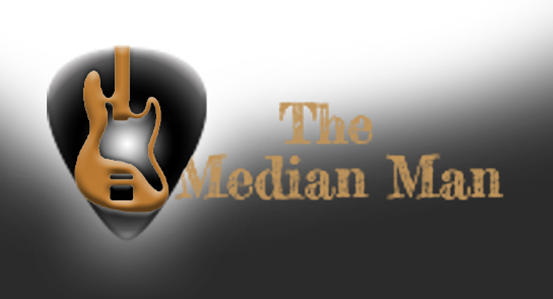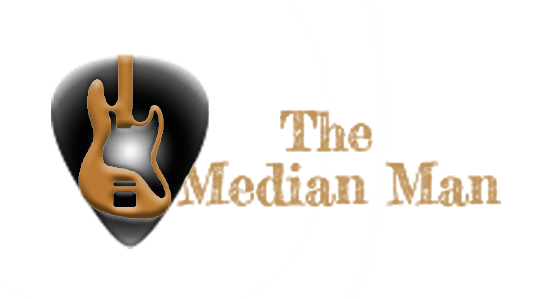What inspired the name of the band? What are your influences and are they the same as when you started out?
The name was just us looking for a simple sound that could be pronounced more or less the same way whatever the language – because we’ve always hoped for an international audience. And it had to have a K in it – Julien (guitars) and I (Michel, vocals & programming) wanted that from the get go, because there’s sort of a Germanic, angular quality to the sound, a monolithic aspect that we wanted to capture. I was toying around with 2 words when Johann (drums) mashed them up for a joke in an email, and that was it. “TRANK” just jumped off the screen and off the tips of our tongues. And no, it’s not reference to tranquillizers, although that would be interesting, wouldn’t it.
About influences – you’d get a very different response to that depending on whom in the band you’d ask. I was reading Jimmy Page’s biography a few weeks ago – and there’s a really interesting quote by John Paul Jones about how, when all their rivals at the time tended to all like the same things and play the same records, the four members of Led Zeppelin had massively different tastes, and that’s what made their sound so rich and unique. Well, we’re not Led Zeppelin (I’m kneeling right now), but we DO have that in common with them. For David (bass), I think it might have been Guns’n’Roses as a teenager – and then Chris Cornell’s bands and projects; you can find some of that melodic sense of menace and tension in TRANK. For Johann (Drums), the clincher was probably Toto and the prog rock bunch – that rich, layered sense of musicianship still inspires him and us today. For Julien, I’d say Muse, where he takes that flamboyance in his playing – but he also learned his chops from a guitar teacher who gave him the Flamenco bug… And for me it was Depeche Mode. As a teenager I felt odd, never quite in my place and weird in all sorts of ways – and there was a brand of accessible weirdness in the sounds of DM’s music that made me feel at peace with being the odd one. Queen were also a huge inspiration – the way Freddie up and decided one day he was a singer, and became the greatest tenor in rock. Just like that.
How do you approach songwriting? Are there any themes that you are keen to explore when you start off?
Songwriting is both a very individual and organic process. It’s individual to the extent that the core melodic idea of a song always comes from one of us – Julien or David, sometimes me. It’s organic because we then develop the idea to its final stage as a group. Johann and I will work on it in a home studio to give it structure and dynamics – then, when we have a backbone that works, we’ll stick it in the practice room and shape it into a guitar / bass / drum demo. I’ll then take it away, add the electronics to enhance the atmosphere, then give it a lyric and a vocal – and then put it back in the practice room to see how the synths and vocals inspire new ideas in the performance. When we then enter then recording studio, all of the arrangement and pre production work is done – all we have to do is focus on the quality of the performance and recording.
As for themes – the lyrics come last, so they’ll be inspired by the music – and whatever is on my mind that might fit it. I love to deal with areas of frustration or uncertainty that a younger version of myself might have approached in a very black-or-white manner, but treat them with more nuance and ambiguity now that I’ve lived a little. I like lyrics that do what our music does : they hit you and grab you from the get go, but the more you listen, the more subtleties you find in them. The themes will come from the world around us and the people around us; and the huge gap between what they want to be, or should be, and what they are. Our first album, “THE ROPES,” was named that after the title song, which deals with the ambiguity of domination-base relationships; we realized when most of the songs were written that they dealt with the theme of the bonds between people, whether visible or not, beneficial or not, clearly defined or not. The second one will probably deal with something different – we’ll know when it’s done.
How do you approach songwriting? Are there any themes that you are keen to explore when you start off?
Songwriting is both a very individual and organic process. It’s individual to the extent that the core melodic idea of a song always comes from one of us – Julien or David, sometimes me. It’s organic because we then develop the idea to its final stage as a group. Johann and I will work on it in a home studio to give it structure and dynamics – then, when we have a backbone that works, we’ll stick it in the practice room and shape it into a guitar / bass / drum demo. I’ll then take it away, add the electronics to enhance the atmosphere, then give it a lyric and a vocal – and then put it back in the practice room to see how the synths and vocals inspire new ideas in the performance. When we then enter then recording studio, all of the arrangement and pre production work is done – all we have to do is focus on the quality of the performance and recording.
As for themes – the lyrics come last, so they’ll be inspired by the music – and whatever is on my mind that might fit it. I love to deal with areas of frustration or uncertainty that a younger version of myself might have approached in a very black-or-white manner, but treat them with more nuance and ambiguity now that I’ve lived a little. I like lyrics that do what our music does : they hit you and grab you from the get go, but the more you listen, the more subtleties you find in them. The themes will come from the world around us and the people around us; and the huge gap between what they want to be, or should be, and what they are. Our first album, “THE ROPES,” was named that after the title song, which deals with the ambiguity of domination-base relationships; we realized when most of the songs were written that they dealt with the theme of the bonds between people, whether visible or not, beneficial or not, clearly defined or not. The second one will probably deal with something different – we’ll know when it’s done.
Why do you write the sort of music that you do?
Because it’s the music we want to hear, but no one else is playing it. And because it’s what happens when the four of us get together.
How do you decide what songs to perform live and how do you transpose them into that live setting?
That’s easy – we always build the songs up in a way that they sound great live. We literally write them with the stage in mind. That conditions not only the way an individual song is going to sound, but also our selection of tracks to make up an album or a concert : we want each song, each album, each gig to be a self-contained trip, whereby you never get bored by repetition. You need light and shade all the way. Although there’s only four of us, Julien and David are masters of the pedal board and they usually sound like there’s a couple more people playing. We don’t have a live keyboard player and I don’t want to be stuck behind synths, so whatever little electronics there are get stored on a drumpad sequencer and triggered by Johann live, but other than that it’s got to be playable by the four of us. Sp thet songs might be quite elaborate – but they work in a live context. What we’ve now started to do though, is to extend certain specific passages – longer intros, more space for solos – to take even more advantage of live dynamics, and not be limited by the 3 / 4 minute attention span on Spotify. But if a song works live, it’ll work in the studio.
How do you decide what songs to perform live and how do you transpose them into that live setting?
That’s easy – we always build the songs up in a way that they sound great live. We literally write them with the stage in mind. That conditions not only the way an individual song is going to sound, but also our selection of tracks to make up an album or a concert : we want each song, each album, each gig to be a self-contained trip, whereby you never get bored by repetition. You need light and shade all the way. Although there’s only four of us, Julien and David are masters of the pedal board and they usually sound like there’s a couple more people playing. We don’t have a live keyboard player and I don’t want to be stuck behind synths, so whatever little electronics there are get stored on a drumpad sequencer and triggered by Johann live, but other than that it’s got to be playable by the four of us. Sp thet songs might be quite elaborate – but they work in a live context. What we’ve now started to do though, is to extend certain specific passages – longer intros, more space for solos – to take even more advantage of live dynamics, and not be limited by the 3 / 4 minute attention span on Spotify. But if a song works live, it’ll work in the studio.
What plans do you have for the future?
Fame. Fortune. Decadence. Never-ending farewell tour. TOURS – remember those ? In the meantime, “THE ROPES” has just been reissued as a deluxe edition with 12 very cool remixes added to the 12 original songs, in which we push the electronic side of the band in various directions with some very, very talented people involved. It’s getting rave reviews and we’ve got our first features in major mags written, as well as the support of webzines and blogs like yours, which is very cool. And while we can’t yet defend it on stage, we’re busy writing the second album. There’s always a song waiting to be created.

